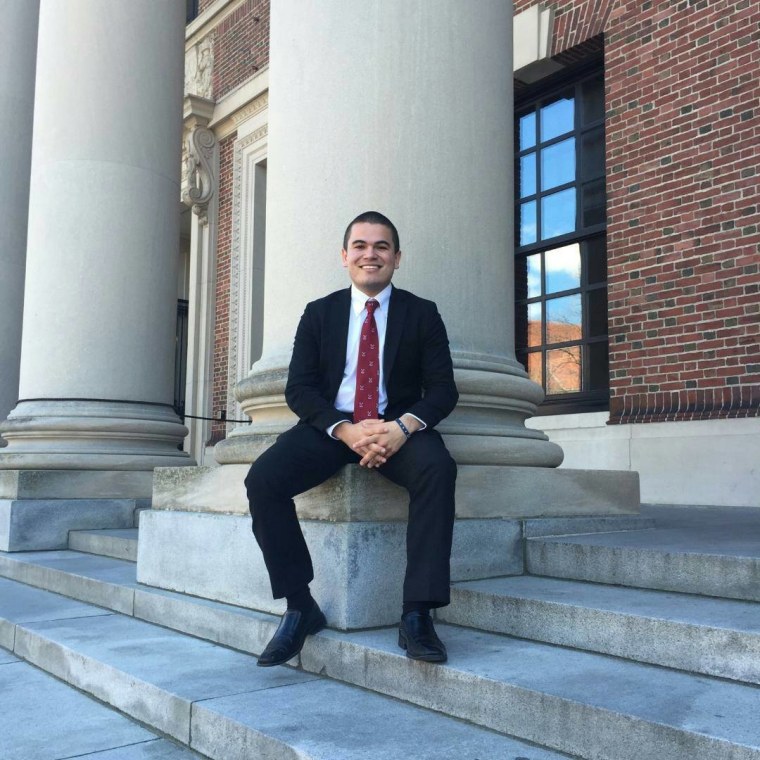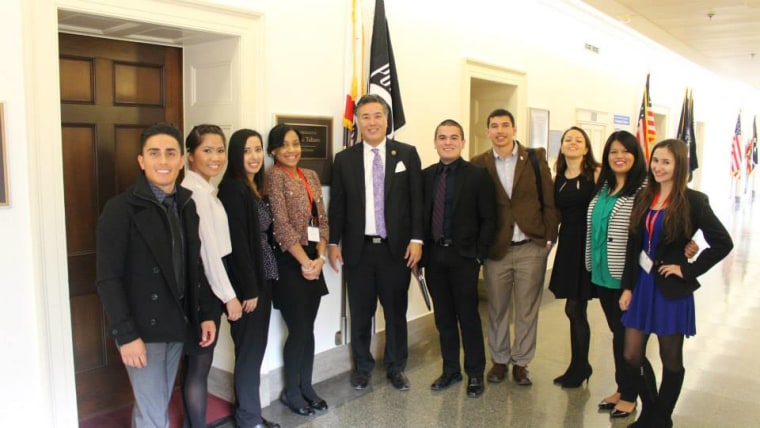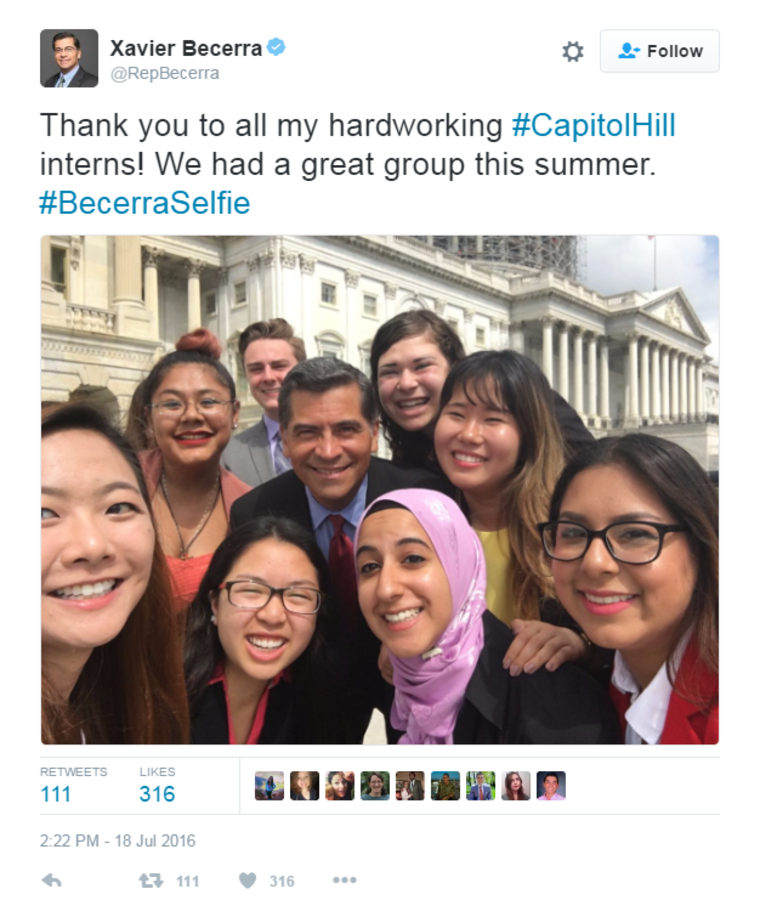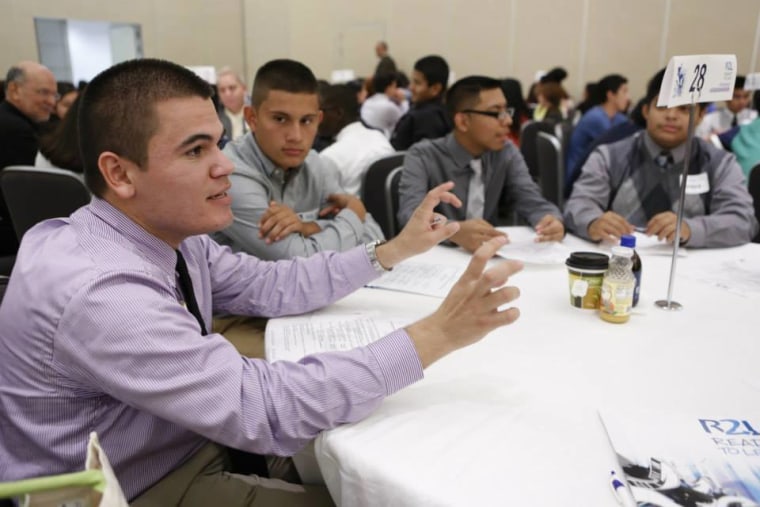House Speaker Paul Ryan's photo surrounded by a sea of congressional interns has caused a firestorm as the "whiteness" of the young people in the picture has reverberated on social media.
At a time when the image of the Republican Party finds itself at the mercy of Donald Trump, the selfie rankled many who saw in the photo a party that is too insular and more intent on reaching out to white voters than to a growing and increasingly diverse electorate.
This lack of diversity on the Hill, however, has less to do with party politics and more with how Congressional internships operate.
Interning in Congress is a rite of passage for any college student who wants a career in politics, but they don’t come cheap. Congressional internships are generally unpaid, and living in D.C. will cost you a pretty penny.
Rent is more expensive than in most cities, and you have to budget in flights to and from D.C, transportation, food, and professional suits to wear for work. Interning on the Hill during the summer can cost a student up to $6,000 for three months.

Add this all together, and you end up with a glass ceiling that is largely impenetrable for most students of color.
As a former intern in Congress, this picture validates my frustrations with a system that is not kind to people of color or those with little means.
I remember walking through the halls of Congress and feeling intimidated and out of place because the only people that looked like me were the custodial workers. I also spent most of my time there exhausted.
At the time, I was a freshman at American University on a scholarship, so I had the advantage of being able to intern while going to school in the same city. The only problem was that I couldn’t afford it, and I couldn’t ask my parents for money.
I ended up interning 25 hours a week, working 20 hours at my paid job, and taking 16 credits. I was only 17 years old, and I was fighting the urge to fall asleep at my desk because I was getting so little sleep.
Some people may look at this picture and wonder, what’s the big deal if you can't afford to be a congressional intern? The problem is more often than not, a good number of of them will end up working in Congress. They are part of the Congressional pipeline from intern to staffer that largely consists of white people.
RELATED: In With the New: Meet Congress' Latino Newcomers
Congress is one of the few places where you do not get hired unless you have “Hill experience,” which translates to having the money to intern for free during one of your summers in college.
The problem with this is that there are students of color who want to be in public service and are left out because of the price tag. Having a monochromatic staff leads to bad policy making.
Whether people want to admit or not, life experience and background shape our views and how we see the world. This could not be more true than for people that come from marginalized communities.
Policy making isn’t objective, it’s influenced by the staffers who write it up. This is influenced by their upbringing. If there’s a meeting on a policy affecting Native Americans, it's safe to say that a staffer who is Native American would bring additional insights to the topic.
Regularly, reports come out that state the obvious: Congress is a very white place.
Yet nothing changes. Nothing significant will occur until members of Congress offer paid internships. While unpaid internships aren’t going away anytime soon, some sort of internship that is paid should be available for constituents with limited means.
RELATED: 10 Things to Know About Hispanics in Congress
According to a report by the Joint Center for Political and Economic Studies, paid internships are one measure to ensure there is a diverse “intern to staffer pipeline.”
For the last 38 years the Congressional Hispanic Caucus Institute has been offering paid internships and fellowships for Latinos while placing them in Congressional offices. Their work has paid off, and some of the top Latinos on the Hill are CHCI alumns.

Some have even left the Hill, like Stephanie Valencia, who served as Deputy Chief of Staff to the Secretary of Commerce. By paying interns with financial needs, it is providing the work experience and access that will allow them to then become staffers on the Hill.

Congress exists to represent the voices of Americans of all races, religions, and creeds. When interns in Congress, and later the people who staff Congress, do not look like me or don't understand my experience, that’s a huge problem.
This is not just a Latino issue. It affects so many who cannot afford the opportunity to shape our national discourse.
It’s time for Congress to give every bright and talented student a fair shot to intern.
Carlos Vera is an associate at Megaphone Strategies, a progressive PR firm run by women and people of color. He previously interned in the House of Representatives, the European Parliament, the White House and founded Justice for AU Workers, a labor organization focused on fighting for custodial workers of color.
